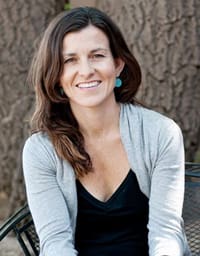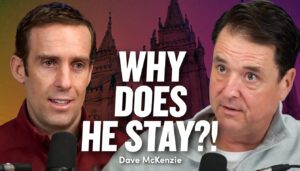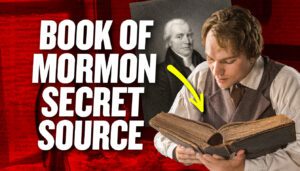 We are excited to launch the pilot a new podcast and set of resources located at MormonTransitions.org. The purpose of this project is to support LDS church members who are navigating difficult Mormon-related transitions.
We are excited to launch the pilot a new podcast and set of resources located at MormonTransitions.org. The purpose of this project is to support LDS church members who are navigating difficult Mormon-related transitions.
In today’s episode, Joanna Brooks and Brian Johnston join John Dehlin to provide an overview of navigating a Mormon faith transition.




31 Responses
Doesn’t seem to be working.
Charles – The first day of downloads is always slow. Try back few times over the next 24 hours…and let me know if it’s not fixed by then. Thanks!
Excellent podcast! Thanks!
not working for me either
Many thanks, valuable advice that relates to many years of soul searching I experienced in taking myself out of the church.
Thank you John, Joanna and Brian for your heart and work. Several helpful suggestions will add to that which my wife and I already use as facilitators with LDSTransitions to help those emigrating through the cultural and worldview issues that come with choosing to make a home as a believer in Christ within the family of historical/creedal Christianity.
One thing I’ll add that is not always a common part of the “working narrative” among Christians (fo-Mo or otherwise) ministering to LDS who are having crises of faith: We must allow for the “person of peace” principle, as it were. When Jesus healed the possessed naked man the man wanted to immediately follow Jesus. Jesus told him to stay behind to prepare people for when Jesus returned to teach in the town. When LDS persons having a crisis of faith are also drawn to identity in Jesus as part of their healing, we must equip and support them if God is moving them to stay among the LDS to help prepare healthy ways for Jesus to change hearts.
May you all and your efforts honor God and be blessed!
Helping a lot, thanks for all you guys do!
Thank you so much John, Joanna and Brian. My wife and I needed this today. So grateful for what you do!
There was an article mentioned in the podcast about Faith Crisis/Transition that the panel felt was a really good resource. What was the name/author of this article and do you by chance have a link to it?
I’m guessing you are talking about this: “How to Stay in the Church of Jesus Christ of Latter-Day Saints after a Major Challenge to your Faith” by John Dehlin (updated and expanded by me).Here is a link to the page where it is hosted. There’s an HTML and a PDF print version:
https://www.staylds.com/?page_id=29
Got it. Thanks!
I know this is pretty goofy!!! But I love “the Zombie plague” comparison! Thanks for weaving some “dead pan” humor in with this weighty topic!
Awesome! Great information!
I emailed this podcast link to my old Bishop that was absolutely no help to me in anyway. It will help open a dialogue that could be productive and enlightening for future transition crisises.
This was great and rang true to so many of my transitional feelings
I really appreciated the end where all 3 gave information on different sites and groups to participate in…I’ve had a hard time posting on the Facebook support communities because of the lack of anonymity (not quite ready to have the hard conversations) but don’t like the “raging in the machine”, as John put it, with some of the other sites.
Special thank you to Joanna- it was her article on CNN a few months ago that brought me to the Mormon Stories addiction I have.
Anonymity is very helpful at certain points. It is really helpful to practice having conversations with other folks out there in the virtual world, and getting valuable feedback before “going live” with spouse and family.
Wow, a podcast hosted by three heavyweights in the challenges what beset the LDS church membership today. I thoroughly enjoyed this podcast. I have worked/fellowshipped/tried to navigate all three of the support organizations you recomment. I didn’t stay with StayLDS to long, I was in a place where I stopped for green lights and proceeded ahead on red lights (if you get my gist). The pain was absolute, and I was angry over being lied to. I stayed much longer with New Order Mormons, even attended group activities and found great friends. Stil, by ethics would not allow me to ride the fence post. I have never had great night vision, the lights on the highway blinded me. Mormon Stories Podcast was the answer to my quest. I found the support I needed through my acceptance of the fact I will always claim Mormon culture. Half a century in the church doesn’t die easily. Thanks for all your inputs, I am at peace now and feel a connection to everyone. It is beautiful. It is funny. Perhaps we will laugh together one day in the cosmos. Shalom.
Loved this. Thank you.
My issue I grapple with the issues, but I’m avid MS and MM fan, and I’m a member of the local MS support community but its hard to feel supported when my goal is to stay. The community itself seems to be geared toward helping people transition out of the church, and belittles those that still have ideas of faith or belief.
Guest – You’re not alone. Others feel this way as well. It’s a very tough balance to walk, and we’re trying to learn how to do it better. We very much appreciate the input. Please know that we’re trying our best to make improvements to get this right. Thanks again for writing.
If you want to stay in the church, wouldn’t it be better to only read and listen to what the church wants you to read and listen to? I don’t see how it’s possible for someone to remail in the church who knows the church lies as a matter of routine while claiming the high moral ground in the world. That’s Orwellian “doublethink”.
I totally get that your don’t see how that’s possible based on your knowledge, reasoning and experience. I’m not asking for you to understand or even accept my views but I am asking you you to respect them and not conclude that your somehow intellectually superior.
Also, there have been many many guests on MS that have tried to help you understand that so its not like I’m just some isolated instance. I’m sure you’ve heard the various interviews with Givens, Peterson, Bushman, etc… and while I can obviously tell you don’t agree with them, to reduce people and all their ideas to “doublethink” is pretty extreme.
Guest, I hear exactly what you say. I’m also trying to set a course back to a faith community that I love, and it’s been very difficult. I’m skeptical. I am clearly uncomfortable in Sunday School (as my home teacher noted). I realize that many of the salmon here are swimming downstream, while I’m swimming upstream. But I’ve found a lot of value in the online conversations that I have, regardless of the direction that people are moving in their lives. I rely on Mormon Stories for a lot of support, and they give it to me abundantly. I honor other people’s perspectives while I explore my own. It’s because of the people in the Mormon Stories communities to which I belong that I can be in church every Sunday, quite broken, but whole.
The one thing I always feel I’m asked to do when considering the truth of the church, the idea of Joseph Smith being a true prophet, the BOM as a work of God… is to abandon reason and replace it with a “feeling”, or technically faith. I believe what makes humans the greatest of God’s creations is that we have a brain that allows us to reason and make a choice. Why would God want me to abandon or discard the greatest physical gift that He has given me. Where is there ANY evidence that “feelings” are a reliable source for knowing what truth is? I would argue that “feelings” are very subjective and far from being a reliable source of truth. So without feelings, I’m left to use my brain to determine what truth is. I choose to use God’s greatest gift He has given me and it becomes easy to determine that not only is the LDS church a creation of man, but more than likely all organized religion is. To listen to these Podcast, it becomes almost unbearable to hear what some of these apologist are asking me to do with my brain. Unfortunately I was raised in the church and have held many prominent callings. The doctrine has been so ingrained in me for so long, that I’m addicted to the practice of trying to find a good “reason” to believe. Otherwise it would be so easy to walk away from this whole nonsense. None of these apologist or active members of the church would accept these arguments or practices from any other leader or organizer of other religions. Their “reasoning” would have them discard those people immediately, i.e. Warren Jeffs or Muhammed. I’ve listened to friends and family talk about other faiths or their leaders and make reasonable observations that easily discredit the faith, yet they would never use that same reasoning with the LDS faith. When it comes to the church we are taught the opposite, trust your feelings and abandon reason. As Ayn Rand teaches a person who abandons their ability to reason becomes a nothing, no better than the lowest of animals.
Truth is a very fuzzy term. Mostly, we think of it in terms of materialistic and mechanistic facts about the tangible. We worship the almighty God of rational thought in our modern world. But the human condition is not entirely rational, nor is the universe around us reasonable. The ratio PI is an irrational number. It is not rational. We can not know it fully. Yet it represents a “true” relationship in physical reality. It is very useful and practical to know this and have “faith” in it. Engineering and construction could not exist without “faith” in irrational geometry.
PHI is also an irrational number and relationship. We experience it most profoundly as a subjective *FEELING* in art, as a pleasing balance. It is also “true.” We can depend on it. We can’t know it, but we can feel it. It can not be reasoned, but it can be felt. It is also useful and practical. Many great natural structures crystallize into this form around us.
Love. Happiness. Pain. Suffering. These are all “truths” that are experienced through feelings. Emotions are wild and unpredictable, like the frenetic waves of the ocean crashing on a rocky shore. Humans are part rational and logical, part reasoning. We are also part irrational and random, full of beautiful and dangerous chaos, full of powerful emotions that defy all reason at times. It is my opinion that when we deny that part of our nature, we are not embracing what it fully means to experience our humanity. We sell our selves short in the brief theme park of life.
As far as believing “The Church is True(TM),” I don’t think any of us panelists in this podcast feel that is a requirement for anyone. I’m not personally attached to the literal nature of the truth claims in our LDS foundational story.We don’t want you to believe or not believe in the truth claims of the Church. We want you to be happy. If that means leaving and/or cutting the emotional and intellectual ties, you should do that. Be emotionally healthy and happy. Life is short. Do what is best for you and for the people in your life that you love. It usually isn’t a simple black or white answer, unfortunately. There are costs and benefits. That’s why we end up talking about it so much. Everyone’s decisions are different.
We just want to give people hope in the process, that things will get better, and that we will all do the best we can with what we have to work with.
I appreciate your thoughtful response. I guess I should clarify that I believe feelings are not a reliable source for truth when it comes to religious beliefs. For example, if I just used feelings I’d believe that “Braveheart” was a true witness of the life of William Wallace. With reason I can easily conclude that it is not. Without reason in religion we end up with people flying planes into buildings, committing mass suicide at Jones Town, letting their wives be spiritually married to Joseph, accepting the stone in the hat translation method etc… I certainly agree that feelings of pain, joy, happiness are a vital part of the human existence, but I believe that those feelings should be a part of living, not to create the life we live in. For example, a child may feel happiness at coming to the result that 2 + 2 = 5, but eventually that feeling will fade with time and only the reality will remain, which is that the answer is wrong. I like your example of PI, but let me say that even though the number may be irrational the reality is that it creates something real, thus a value for a value.
Finally, I think I should clarify that my initial post was not meant to criticize you or the others that are part of Mormon Stories, in fact I have much respect and appreciation for all of you. I just get frustrated when I listen to some of the podcast where the church and its history is being defended. That being said, I’m very grateful that John has them on here. I want to hear the other side, there is a part of me that has a “feeling” of hope that I may hear a reasonable explanation for the religious beliefs. But,, when I listen to a BYU professor or BOM expert give explanations for things, it becomes painfully obvious that the only thing they have is abandon reason and ” you just need to believe”. Ultimately, I think I’m just frustrated with the fact that on the outside looking in, I’m a very active member of the church, a former bishop, currently on the High Council. I’ve served in these positions knowing that I’m not the mormon that everyone thinks I am. But for the sake of my family, I continue down this road. So I’m always looking for a value in return for the value I’m giving. While I appreciate the life lessons the church offers, it is hard for me to see my children being brain washed about the one true church, Joseph Smith is great…. But to pull the rug out now would be a damaging blow to my wife and kids.
I know my story is similar to many that visit this site. So thank you for providing this format. At least I have a place to put in writing things I can’t say.
Brian, that was so beautifully put. I read it, and couldn’t stop thinking about it for a while and had to come back and comment.You see, if all Mormons felt as you did,then the choice to live an authentic life, in whatever varying degree of Mormonism works for you would be simple. It would be wonderful and celebrated by all. The “judgyness” on how devout a Mormon you are would be gone and people could really be happy. The problem I have is that it isn’t like that in the Mormon culture. Even within my very own family, I know that I would be judged if I chose to live a different level of Mormonism that they thought was appropriate (expectations). And secondly this wouldn’t work for me because I feel that being judged as a hypocrite or “jack mormon” is an intense judgement of my moral character versus just judging my inactivity. See the dilemma? Thanks for sharing your great thoughts though. Perhaps, one day Mormons will have a more open minded culture and more transparency in regards to historicity and authenticity issues across the board.
If I could piggyback on Bryan Jensen’s comments here, I appreciated this podcast discussion. It addresses key issues faced by individuals in the transition process. In addition to suggestions on the issues, the podcast members also mentioned resources to help with the transition process from a variety of perspectives. One that is missing, however, is one that considers the needs of those who are interested in migrating toward a more traditional Christian pathway. This is available in the Transitions resource at http://www.LDStransitions.com. This six-part video and workbook (print and digital) is designed from the perspective of the immigrant as they work through the issues of identity, relationships, church culture, as well as doctrine and worldview. It is the first resource produced with the needs of the transitioner in mind as they seek a traditional Christian pathway, and does so in ways that are respectful of LDS culture, and informed by a variety of disciplines, from theology and religious studies, to identity theory, and the social sciences. I hope some here might find this worthy of exploration.
Hi John,
I love the Mormon Stories site. Unfortunately it is not uncommon for the podcast to stop in the middle before it has reached the end of its time. I’ll listen to the next segment and clearly missed a portion of the discussion.
On this podcast however there is not even a place to listen. From the comments, apparently others are able to listen.
If you have any suggestions on what I can do to listen to this one (faith transitions) or complete other podcasts (McLays and Ryan Cragan for example) I’d really appreciate it. Thanks!
It sounds like your internet connection cuts out Flynn. You might try downloading the MP3 file to your computer and listening to it from there.
Hey, did you take this recording down? Can’t see the download link anymore… I listened to this one a while back and would love to hear it again.